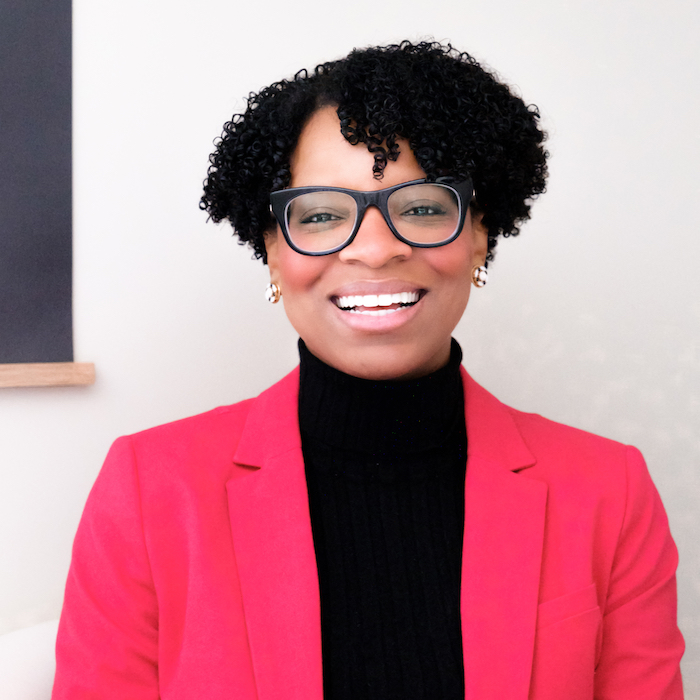Table of contents
Before the pandemic, Blades Co Barbershop in San Francisco serviced “about 100 clients a day, in just one of my shops,” said owner Susan D’Arcangelo. “Now, it’s maybe 75 if we’re lucky.” Like many lifestyle businesses, salons suffered severely during the height of the COVID-19 lockdowns.
According to a study by the Center for LGBTQ Economic Advancement & Research (CLEAR), about 70% of LGBTQ+ owned businesses experienced financial challenges in 2020, reporting difficulties paying for their operating expenses, uneven cash flow, and weak sales.
In the past two years, D’Arcangelo relied on Square Loans to stay afloat. Still, CLEAR said that many other LGBTQ+ owned businesses faced various obstacles when they tried to access financing and emergency assistance. As D’Arcangelo rebuilds her business, she attests, “It’s basically hand to mouth right now.”
For the LGBTQ+ community, financial security has not always been an attainable — or even simple — goal. Recent legal protections, such as the right to marry in 2016, have made prioritizing savings and planning for retirement easier.
Here LGBTQ+ Square sellers — many of whom are used to forging their paths and thinking outside the box — share tips on how to save for your business and build financial security to protect your loved ones.
1. Save, save, save.
A savings account is one of the most straightforward ways to plan for the future and set up your business for success, but 61% of business owners don’t have a business savings account. In 2016, a Prudential Life study found that LGBTQ+ consumers are less likely than the general population to have a savings account, partly because of gaps in perceived financial knowledge.
Lucas Tatham and Trellis Smith, proprietors of Modern Homestead guest house and garden center in West Virginia and parents of two boys, know that changing that attitude starts at home with the family business. “We always told our children that we’d love for them to be a part of the business, so we create opportunities for them to earn money,” Smith said. That meant giving the kids jobs — and regular paychecks. Not only has it instilled the value of hard work and reward, but it’s also helped them learn to save. Tatham adds, “We’ve tried to impress upon our kids that for every dollar you earn, to try and save a portion of it for any plans, whether buying a car or taking a trip abroad.”
University of Redlands business professor Jim Spee is a board member of ONE i/e, a nonprofit that supports startup founders. He advises business owners to save 20% of their income — “just like somebody in a defined contribution plan.” That means ensuring that your business has enough surplus so you can extract those profits or that the company has enough value that you could sell it when you’re ready to leave.
2. Assess your risk tolerance early.
Financial planning starts with open and honest communication, whether in business or within a family. Discussing joint expenses, saving plans, and long-term financial security will help develop a comprehensive strategy. As a couple Tatham and Smith created a long-term plan for their joint finances as soon as they knew they were serious about each other.
As business owners most of their earnings go back to their businesses. “We don’t take fancy vacations or spend on unnecessary things,” Smith said, “because growing a business involves a lot of sacrifices.” His advice? Be very careful with spending money. “It’s amazing that you don’t need stuff for enjoyment or running a business.” He adds, “Before becoming self-employed, you must figure out your priorities and how much comfort you have with the unknown.”
Assessing risk also means clearly understanding the market, according to Spee. He advises business owners not to get stuck in the commodity trap: “Find things that add value to a particular population. If people want what you are doing, then you can charge above your cost to do something.”
3. Consider out-of-the-box retirement solutions.
Planning for retirement is essential for long-term financial security. But when business owners plan for retirement, they’re not looking at IRAs or workplace retirement plans. Instead, they invest in real estate to sell or generate income. “We’re not going to stop running our business when we hit 65,” said Tatham. Susan D’Arcangelo invests in classic cars. Her retirement plan includes selling her business and property and moving to Italy to retire.
4. Plan for emergencies.
From being proactive about preventative health care to maintaining a six-month savings reserve for personal and business needs, Tatham and Smith plan for emergencies as best as possible.“Having a safety net helps to handle unforeseen circumstances,” Tatham said. “The big thing I preach [to both my kids] is always to have six months of cash reserves. That’s how we run our businesses. If the bank account gets below a certain amount, I get aggressive by cutting spending and increasing revenue.”
Did you know?
Savings Tip: Automatically grow your nest egg with Square SavingsJust specify how much you want to save, and Square will automatically put aside a percentage of your sales. Start saving today →
Lauren Borden, co-owner of Delano Nursery, has relied on Square Savings to ride out the last few years of extreme — and unpredictable — Bay Area weather conditions. “Square Savings felt like a really great idea to be able to monitor cash flow and have a resource for backup funds,” she said. “To set aside a certain percentage has been great, which we can flex up and down depending on if it’s a busy or slow time.”
By saving, assessing risks, exploring alternative retirement options, and planning for emergencies, the LGBTQ+ community can optimize their plans for financial security.
Spee also recommends seeking professional advice from LGBTQ+ organizations and support networks that offer financial education, resources, and assistance, such as the Center for LGBTQ Economic Advancement & Research.
“This life is unexpected,” said Susan D’Arcangelo. “No matter what we plan for, it may not happen. So I try to live one day at a time the best that I can.”
Keila Hill-Trawick is founder and CEO of Little Fish Accounting, a boutique CPA firm dedicated to serving micro businesses through accounting and tax support.
Aja Evans and Keila Hill-Trawick are not employees or consultants of Square, and the views expressed in this article are solely those of the authors and are not endorsed by Square. This article is for educational purposes and does not constitute legal or tax advice. For specific advice applicable to your business, please contact a professional.
Finance in Focus: Make a Date To Manage Your Books

Aja Evans is a licensed mental health counselor who specializes in financial therapy. She owns and operates a private practice in New York City.
You’ve heard me emphasize how creating healthy financial habits is more about your emotions than about the actual math. Habits help ground us when business feels chaotic, reminding us of what we can do to feel more empowered. By developing positive emotions about money, you can move toward smashing your financial goals.
First, let’s work on building the habit of knowing your numbers better. Set an alarm to do your bookkeeping every Friday at 2 p.m. (or a time that works for you). Block out your calendar and let your staff or loved ones know you won’t be available. This practice will give you more awareness of how you did this week, space to think about what worked and what didn’t, and a stronger sense of control over your finances. Bonus: It will take away any second guessing about how to start the next week, or the busy weekend, on the right foot.
Good With Numbers: Unravel What Your Numbers Are Really Saying

Keila Hill-Trawick is the founder and CEO of Little Fish Accounting, a boutique CPA firm dedicated to serving micro businesses nationwide through accounting and tax support. Keila doesn’t work for Square. Her views are her own and are not endorsed by Square.
As a business owner, you’re constantly facing decisions — whether to hire more people, to increase prices, or even to quit your 9–5 to take your business full time — that will get you closer to achieving your goals.
The profit and loss statement (aka the P&L) is one of the most straightforward financial statements to show how your business is performing. If you made more money than you spent, you’ll have a profit. If you spent more than you made, you’ll have a loss. But the numbers themselves don’t tell the full story. You’ll need to analyze this information based on other factors to truly understand what they mean — and to make strategic business decisions.
Pay attention to both the explicit and the implicit data points in your P&L. Explicit data are your numbers at face value and serve as the foundation for your financial report, such as revenue and profit. Implicit data add depth and interpretation to your analysis and include factors such as how you felt while making the money.
Closing a record month in sales is great, but if it left your team feeling burned out, it’s not sustainable. ”
Keila Hill-Trawick → Little Fish Accounting CEO
That implicit datapoint will help you pivot, such as by raising your prices or hiring more staff — something your revenue number alone can’t do.
I broke this and a lot more down in a short podcast episode about the P&L statement, what it tells you, how to use it, and how it relates to taxes — all in about 18 minutes.
Square Financial Services, Inc. is a wholly owned subsidiary of Block, Inc. All loans are issued by Square Financial Services, Inc., a Utah-Chartered Industrial Bank. Member FDIC. All loans are subject to credit approval. Savings accounts are provided by Square Financial Services, Inc. Member FDIC.
![]()










